I am trying to find a fastest way to make square root of any float number in C++. I am using this type of function in a huge particles movement calculation like calculation distance between two particle, we need a square root etc. So If any suggestion it will be very helpful. I have tried and below is my code
#include <math.h>
#include <iostream>
#include <chrono>
using namespace std;
using namespace std::chrono;
#define CHECK_RANGE 100
inline float msqrt(float a)
{
int i;
for (i = 0;i * i <= a;i++);
float lb = i - 1; //lower bound
if (lb * lb == a)
return lb;
float ub = lb + 1; // upper bound
float pub = ub; // previous upper bound
for (int j = 0;j <= 20;j++)
{
float ub2 = ub * ub;
if (ub2 > a)
{
pub = ub;
ub = (lb + ub) / 2; // mid value of lower and upper bound
}
else
{
lb = ub;
ub = pub;
}
}
return ub;
}
void check_msqrt()
{
for (size_t i = 0; i < CHECK_RANGE; i++)
{
msqrt(i);
}
}
void check_sqrt()
{
for (size_t i = 0; i < CHECK_RANGE; i++)
{
sqrt(i);
}
}
int main()
{
auto start1 = high_resolution_clock::now();
check_msqrt();
auto stop1 = high_resolution_clock::now();
auto duration1 = duration_cast<microseconds>(stop1 - start1);
cout << "Time for check_msqrt = " << duration1.count() << " micro secs\n";
auto start2 = high_resolution_clock::now();
check_sqrt();
auto stop2 = high_resolution_clock::now();
auto duration2 = duration_cast<microseconds>(stop2 - start2);
cout << "Time for check_sqrt = " << duration2.count() << " micro secs";
//cout << msqrt(3);
return 0;
}
output of above code showing the implemented method 4 times more slow than sqrt of math.h file.
I need faster than math.h version.
